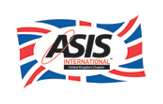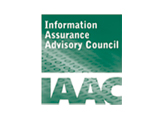Researcher: Prof Robert Speller
Research Institution: University College London
Overview:
University College London is seeking industry partners to provide funding for further research to commercialise their Pixelated X-Ray Diffraction technique.
Product:
• X-Ray diffraction (XRD) for material identification with high sensitivity and specificity;
• XRD gives detailed information on the molecular fingerprint of a material and is a very powerful alternative or complementary technique to traditional X-Ray imaging;
• Demonstrated novel XRD method in which the X-Ray scatter is measured through a material with simultaneous positional and energy sensitivity; and
• This combination of sensitivities vastly increases the efficiency of the technique when compared with standard diffraction measurements. Accurate identification of plastic explosive samples was achieved with PixD using one second of X-Ray exposure.
Market:
• PixD works with transmission through a material and thus is applicable to scenarios where suspicious items are hidden inside packaging or baggage – situations in which Raman spectroscopy would be less effective;
• Markets include explosives detection in aviation security, counterfeit pharmaceutical identification, for both health bodies and pharmaceutical manufacturers, detection of illicit drugs for the UK Border Agency or Police and parcel screening for the postal service.
Benefits:
• Molecular level identification – PixD has a high level of sample specificity when compared with other identification methods;
• Transmission capability – X-Rays are able to penetrate through samples meaning that objects do not need to be opened in order to screen them which is a distinct advantage over Raman spectroscopy; and
• Fast acquisition times – accurate material identification within seconds.
Partners:
PixD is currently fully functional in a controlled laboratory environment (TRL 3-4). Industry partners are sought to provide funding for further research in order to bring the technique towards a market application. Further funding is also required for the development of the screening of larger items, where a more complex experimental setup is needed.
Contact Details:
Email Prof Robert Speller at rspeller@medphys.ucl.ac.uk
















